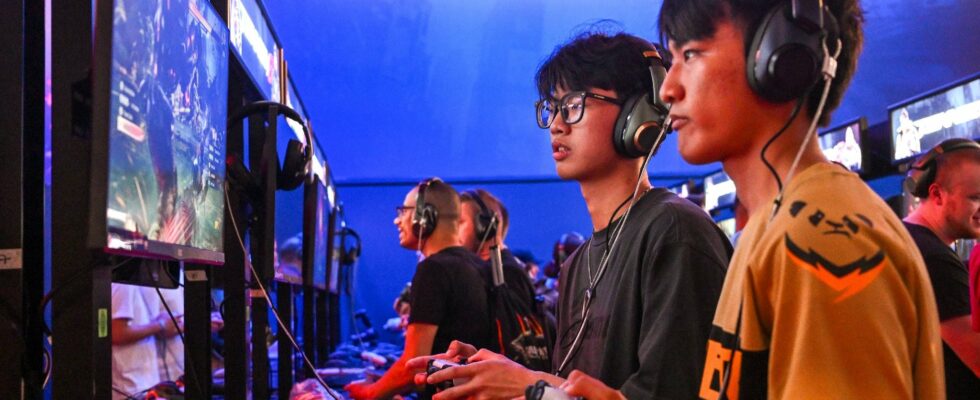The Covid parenthesis is ending in many industries. Home delivery was mentioned in this column a few weeks ago, and now it is the turn of video games to understand that it has eaten its white bread. The feeling of crisis that reigns in the sector after two years of decline contrasts with the growth recorded during the pandemic, which pushed many confined consumers to devote their time and their forced savings to games. This peak marked the culmination of a cycle inaugurated by the release of the first PlayStation in December 1994, bringing the industry to nearly 200 billion dollars in revenue.
Now, the hardware hype is waning. On the console side, Sony has cut its PlayStation 5 sales forecast. Sales have reached 59 million units since launch, including 21 million last year versus an expected 25 million. They are now at 18 million this year. To achieve these figures, Sony has made deep discounts, cutting into its margin.
Nintendo’s Switch, the third-biggest console in history, is in its seventh year of release, and sales are also falling fast. The next version won’t be released until March 2025. Microsoft’s Xbox, meanwhile, has no successor, and sales are sluggish. Fewer consoles mean fewer games to come. In mobile, consumer spending on games fell 2% last year, to $107 billion, according to Data.ai.
Failure of a single game becomes deadly
At the same time, the costs of manufacturing these same games have exploded, putting pressure on developers, who have announced 4,000 layoffs this year, after having already eliminated nearly 10,000 jobs last year. The highly anticipated GTA 6 would have cost between 1 and 2 billion dollars. With such investments, failure becomes fatal. The evils observed in the cinema, namely a concentration around a few worn-out franchises, are found again.
The powerful network effects of multiplayer games, such as Call of Duty, also make it harder for newcomers to succeed. The strategy of reserving certain games for certain consoles in order to make them more attractive has failed, because it limits the potential audience. Microsoft, whose Xbox has been relegated to third place, has announced that it is looking to sell more of its own games on competing consoles, to recoup the $75 billion it paid to buy Activision Blizzard last year.
Disney and Netflix in the dance
At the same time, competitive pressure has increased. The immense popularity of free online games, with purchases included, such as Fortnite Or Roblox, consumes hours of entertainment that were previously dedicated to paid titles. Fearing that their fans would be swallowed up by games, entertainment platforms, films and series, have invested massively in this industry. Last February, Disney put $1.5 billion into the creator of Fortnite, Epic Games. In 2022, Netflix got into the game to keep its subscribers between two seasons of their favorite series. The investment, mainly in the purchase of PC games ported to mobile, now exceeds a billion. And the results are average. To date, Netflix’s game catalog has generated a total of 326 million installations. That is a median rate of 1.3 million installations per title.
You probably don’t know this, but Amazon also entered the fray eight years ago with an internal development strategy for premium games. Alas, the Seattle giant is still looking for its first blockbuster, and it doesn’t hesitate to offer around fifteen tinkered or old games in exchange for a subscription to its Prime service.
The opportunity to recall Google’s adventure with Stadia, its service cloud gaming announced in November 2019. An innovation presented at the time as a revolutionary competitor to similar platforms offered by Xbox or Sony. To develop its content, the company had hired industry legends. Three years later, Google closed the service and refunded all purchases, both hardware and software.
Robin Rivaton is CEO of Stonal and member of the scientific council of the Foundation for Political Innovation (Fondapol)
.
